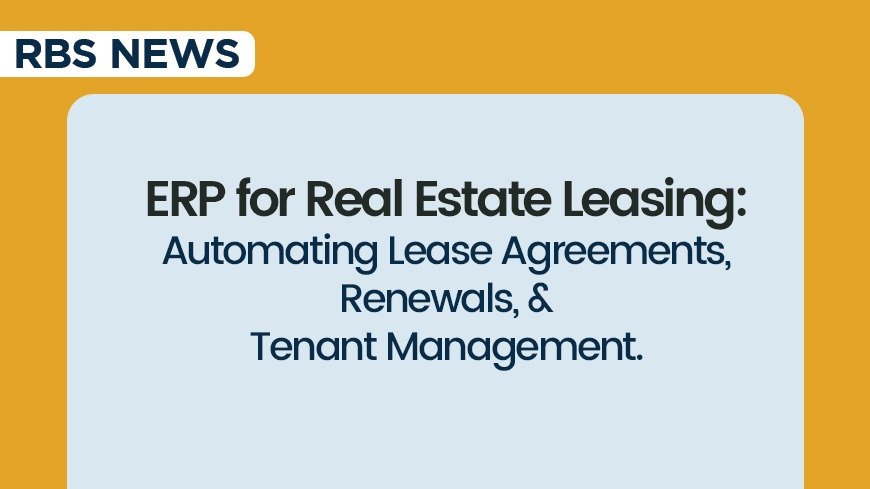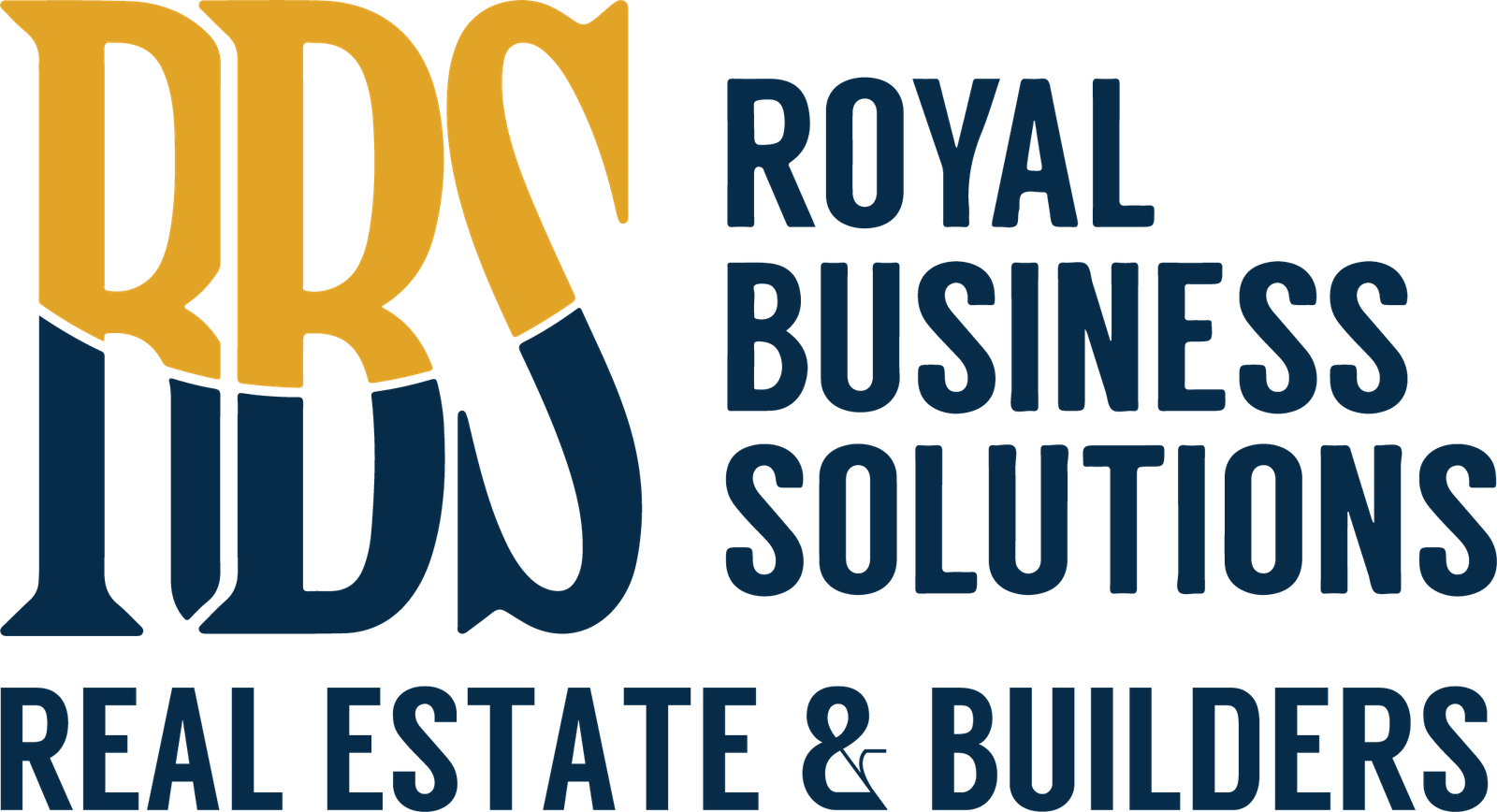- October 18, 2024
- Posted by: Muhammad Shehzad
- Category: Blogs

Efficient management is a key to success in real estate. The transaction process involves several complexities, including handling multiple properties, renewing agreements, leases, tenant relationships, etc. Everything falls into place with the integration of the right tools. Adding ERP (Enterprise Resource Planning) systems can be a smart move. These innovative systems enhance automated real estate leasing processes. From automating leases to tenant renewals and management, ERP for real estate leasing has become an indispensable tool for property managers and real estate developers.
In this blog, we will explain how ERP systems can be used in the real estate leasing business. We will also discuss the positive impact they may have on business processes, making them more efficient and increasing the automation of regular tasks.
What is ERP For Real Estate Leasing?
ERP stands for Enterprise Resource Planning. It is software designed to automate and streamline business processes across different departments, such as inventory, finance, HR, and leasing.
Key Features of ERP for Real Estate Leasing
Here are some of the most crucial features:
-
Lease Agreement Automation
ERP systems are used to create, implement, and renew leases through automation. Within the system, templates for lease contracts can be built that meet the legal requirements and take less time to create than manually.
-
Tenant Management
Manually managing tenant data, interaction logs, payments, and complaints is very challenging and time-consuming, especially if the property manager manages many properties. ERP systems collectively store all the information regarding the tenants, allowing for effective multi-tenancy communications, tracking of rental payments, and compliance with the lease agreements.
-
Renewal Alerts
ERP systems have agent-initiated or user-interface features that issue reminders to property managers when leases are due for renewal. Therefore, they don’t need to remind themselves. These notifications facilitate lease renewal, hence achieving high occupancy and reducing vacancies and associated revenue losses.
-
Remittance and Cash Flow
Some functions of the Real estate ERP system include processing rents, issuance of invoices, and processing payments. The system also connects with financial modules and enables property managers to view their cash flow, revenue, and financial status at any time.
-
Maintenance and Service Request
With the ERP system, daily, weekly, monthly, and special services and/or maintenance requests for tenants become feasible. Responsible managers can then allocate work orders to maintenance personnel, monitor work order status, and guarantee tenants satisfactory and timely repairs.
-
Document Management
Moreover, document Management Leases, contracts, and any other documents related to the tenants can also be retained in the ERP system. This eliminates paperwork, which makes work easier, allows for easy information retrieval, and increases security.
-
Reporting & Analyitics
ERP provides detailed reports on KPIs, such as rental income, occupancy rates, lease renewals, and tenant satisfaction. Based on the reporting and analytics provided by ERP, property owners can make data-driven decisions and optimize their leasing strategies.
Also Read: Setting Strategic Marketing Goals for Real Estate Success in 2025
Benefits of ERP in Real Estate Leasing
ERP system can improve your business efficiency, reduce costs and enhance tenants management. Here are the primary benefits;
-
Automates Repititive Tasks
2. Improved tenant Management
ERP systems consolidate all tenant details that makes it simpler to handle tenant relations. The property managers can easily get some of the important information like the payment records of the tenant, lease agreement details and maintenance records of the property.
Furthermore, the system includes a lease renewal alert that helps property managers never to miss lease renewal dates. Communication with tenants can be easily improved and can be done in a form of an alert on rent payment, lease renewal or even maintenance.
3. Steamlined Management of Lease Agreements
Lease agreement writing and administration can be a very cumbersome activity, particularly to property managers who are in charge of various premises. To make this easier ERP systems provide tools such as the ability to generate templates for lease agreements.
4. Enhanced Financial Management
5. Data-Driven Decision Making
6. Scalability and Flexibility
Challenges of Implementing ERP Systems for Real Estate Leasing
Initial Cost and Investment
Training and Adoption
Customization Needs
Future of ERP in Real Estate Leasing
Over recent years, due to technological advancements, ERP systems used by the real estate leasing companies are complex and now even incorporate things like AI & ML. These technologies can improve on the predictive analysis, so the property managers can determine how the tenants are likely to behave, when leases are probably going to renew amongst other little things concerning the management of the properties.
Also, with cloud-based solutions ending up being far more usual in the latest years, the real estate companies can access their leasing data anytime and from any place, which helps them manage the properties remotely and be more flexible.
Wrap Up
Real estate lease management ERP systems are fast becoming the norm among property managers. Also, for changing the way that lease documents, renewals, and tenant communications are handled. ERP, the real benefits of which are established through reduced manual work, enhanced tenant interactions, and extended real-time financial performance reports, is an ideal solution for the real estate business.
With the increasing use of ERP in real estate companies of Pakistan the opportunity to streamline the portfolio, prioritize the overall cost, and improve customer satisfaction increases considerably. Thus, real estate leasing can be one of the easiest and most successful businesses for property managers and landlords if they manage to choose the right ERP system for their companies.
The implementation of the ERP system is not just to match up with rivals. It’s about positioning your real estate firm for success as the industry gets more and more innovative.
